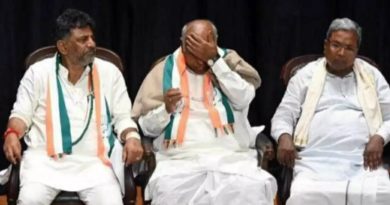G. T. Devegowda Opposes Reservation for Dalits and Women in Karnataka Cooperative Sector Leadership
Bangalore Mail Staff Reporter
Bengaluru, August 19, 2025 — The Karnataka Legislative Assembly has passed the Karnataka Co-operative Societies (Amendment) Bill, 2025, which introduces caste and gender-based reservations in leadership posts of cooperative institutions.
The new law mandates that chairperson and vice-chairperson posts be reserved on a rotational basis for Scheduled Castes (SC), Scheduled Tribes (ST), Other Backward Classes (OBC), and women, similar to the reservation system in panchayat elections. The bill also ensures representation for these groups in nominated board positions, giving them voting rights and eligibility to contest for top roles.
Beyond reservations, the legislation introduces stricter accountability: cooperative members must file annual declarations of assets and liabilities, and primary members are required to attend general body meetings, failing which they face disqualification.
However, former minister G. T. Devegowda strongly objected to the provisions. He criticised the asset declaration clause as unnecessary interference, opposed granting voting powers to nominated members, and warned that the roster-based reservation system for top offices would undermine the independent functioning of cooperative societies.
In defence of the bill, Law Minister H. K. Patil said it was a progressive step toward ensuring inclusivity, equity, and transparency in the cooperative sector, which plays a crucial role in Karnataka’s rural economy.
Key Provisions of the Cooperative Amendment Bill
• Rotational Reservation: Chairperson and vice-chairperson posts reserved for SC, ST, OBC, and women.
• Board Nominations: Reserved nominees with voting rights and eligibility for leadership roles.
• Accountability Rules: Mandatory annual asset disclosures and compulsory attendance at general body meetings.
• Opposition Stance: G. T. Devegowda calls the changes intrusive and damaging to cooperative autonomy.




